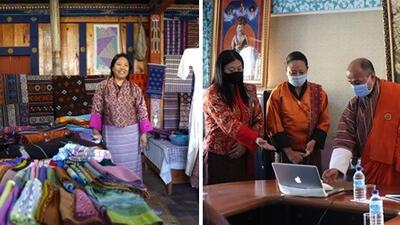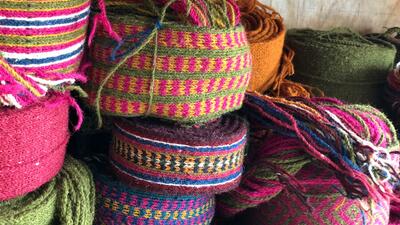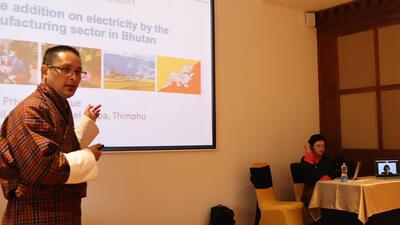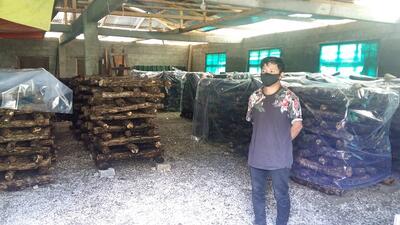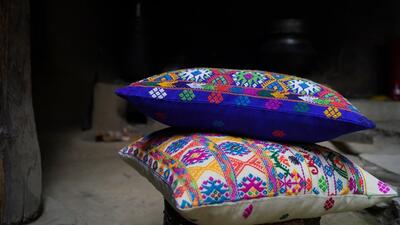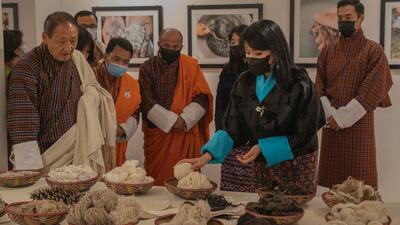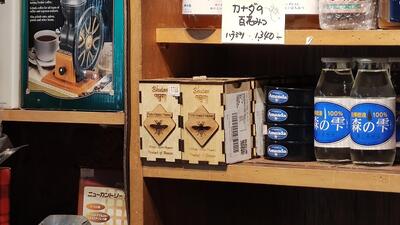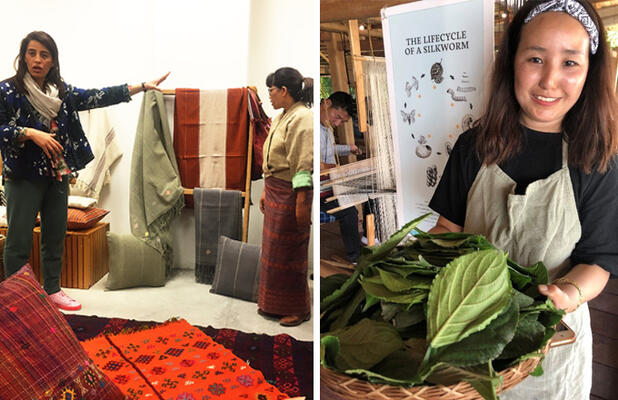
Colours of Bhutan gets noticed in international markets
Small business owner takes her company international with showcase at Paris exhibition
Small businesses in smaller countries such as Bhutan can benefit extensively from training and coaching aimed at building their capacity. These initiatives can help them adopt new and innovative ways of improving quality and skillfully presenting their products to attract the right buyers.
The owner of Colours of Bhutan, Wangchuk Lhamo, proves that determined entrepreneurs can succeed in international markets with the right set of knowledge and skills. What makes her home textiles stand out from the crowd is the use of her own natural fabric dyes. Showcasing her products at an exhibition in Paris has been a life changing experience for the 30-year-old third generation weaver.
‘For the first time, my products are going to be displayed in the international market,’ Wangchuk Lhamo said. ‘I am excited.’
A major attraction of her collection are the hand-woven scarves and pillow cases that were earlier sold exclusively within Bhutan.
Experts from the International Trade Centre (ITC) have trained 22 artisans through workshops on product development, brand identification, home textile products, and export-quality management as part of the EU-Bhutan Trade Support project funded by the European Union (EU). Six participants in the training sessions have also availed of the chance to display at the Paris exhibition.
Upon return, participants in the international exhibitions will train 200 artisans who produce goods for the local handicraft market and export.
The project focuses on providing local handicraft owners the required business skills, knowledge of market demands, export quality management, and best practices in sustainable production while using and applying ‘Brand Bhutan’ guidelines that have been developed to market the country as a tourist destination and producer of desirable products.
‘Weaving is the main source of income for rural and urban women in Bhutan,’ said Karma Choden, manager of the Cluster and Craft Bazaar Development Division at the Agency for Promotion of Indigenous Crafts. ‘Around 95% of beneficiaries of EU-Bhutan Trade Support Project are women and youth who are associated with the handicraft sector.’




